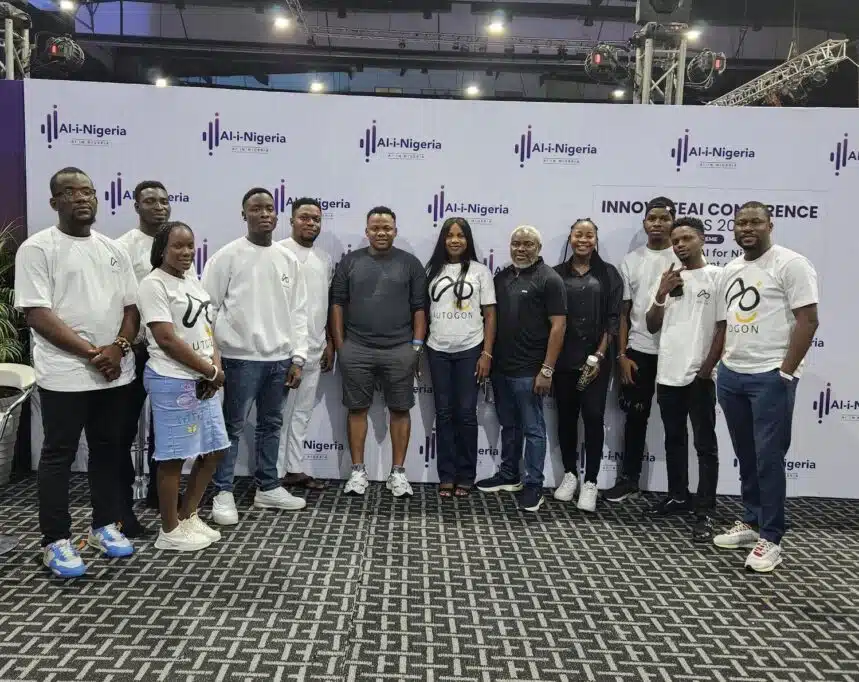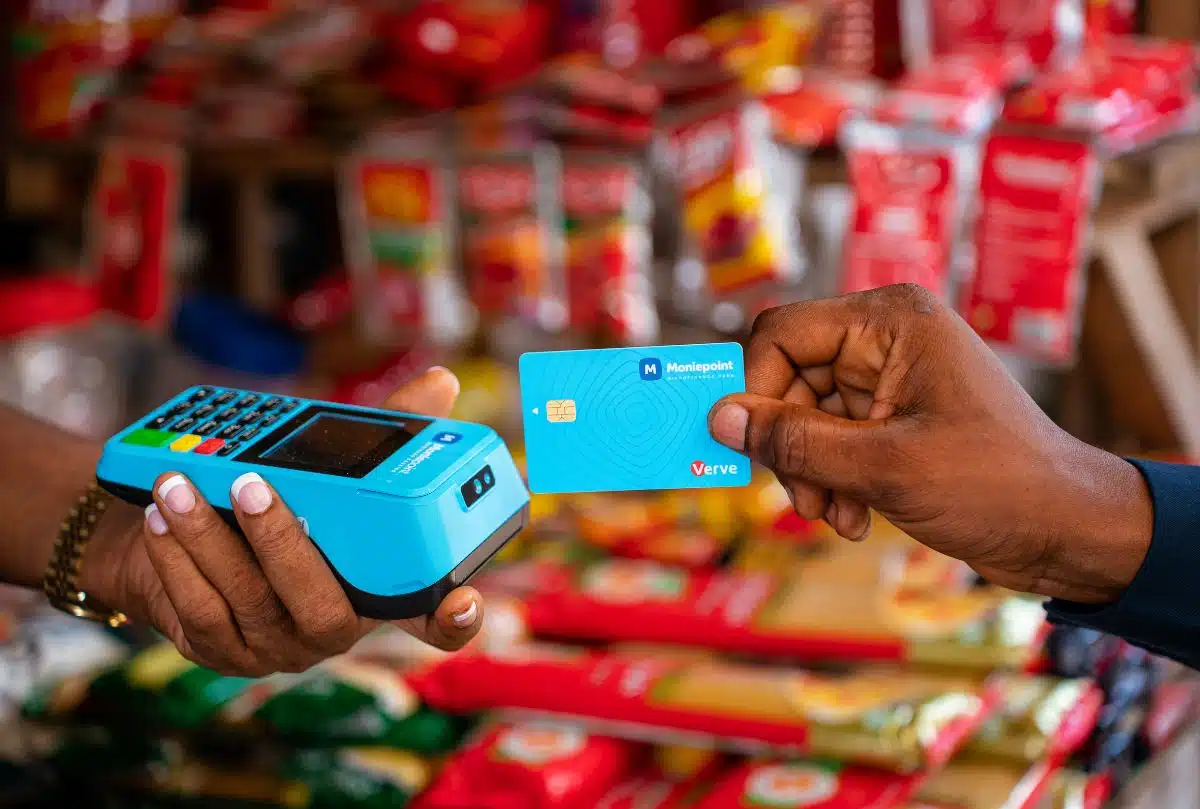Geia,
Victoria from Techpoint here,
Here’s what I’ve got for you today:
- Tunisia shuts down Bolt, other ride-hailing apps
- AI startup in Nigeria builds patented algorithms with potential $500M exit
- Kenya’s High Court throws out a lawsuit against Safaricom
Tunisia shuts down Bolt, other ride-hailing apps

Tunisian authorities have shut down several ride-hailing apps, including Bolt, as part of a major investigation into money laundering and tax evasion. Officials say these companies were running without proper licences, using fake permits, and transferring millions abroad through undeclared bank accounts. Around 12 million dinars ($4 million) have already been seized, and the implicated companies have been removed from Tunisia’s business registry.
The authorities haven’t officially named all the affected apps, but reports show that Bolt is a key target of the investigation. The Estonian-based ride-hailing giant is hugely popular in Tunisia, particularly in Tunis and Sfax, where public transport is unreliable.
Officials say the probe, led by the National Guard’s financial crimes unit, uncovered shady financial dealings by managers of these private taxi services. Their headquarters have been shut down, and their business operations suspended. While authorities are pushing back against financial crimes, this crackdown could leave thousands of drivers and riders stranded with fewer transport options.
The timing isn’t great either. Tunisia’s public transport system is already struggling, with years of poor maintenance and underfunding. Many people rely on ride-hailing services to get around, especially in crowded cities. With Bolt and possibly other apps off the roads, traditional taxis may see a surge in demand, and commuters could face longer wait times and higher fares.
President Kais Saied has been vocal about corruption in Tunisia’s transport sector, often calling out issues in bus and train services. This latest move is part of a broader effort to clean up financial misconduct in the country. But so far, the government hasn’t shared full details on exactly how these companies allegedly laundered money.
For now, it’s unclear how long the suspension will last or what Bolt and other affected companies need to do to get back on the road. Bolt hasn’t made an official statement yet, but its absence could create a transportation headache for many Tunisians. Expect more updates in the coming days as the authorities dig deeper into the case.

Victoria Fakiya – Senior Writer
Techpoint Digest
Stop struggling to find your tech career path
Discover in-demand tech skills and build a standout portfolio in this FREE 5-day email course
AI startup in Nigeria builds patented algorithms with potential $500M exit

Imagine if businesses could build AI-powered tools like fraud detection or virtual assistants without writing a single line of code. That’s exactly what Autogon AI wants to do. Something no African startup has attempted before. Instead of spending months coding AI into their systems, companies can drag and drop their way to powerful AI solutions at a fraction of the usual cost.
Of course, building AI infrastructure from scratch is no small feat. But Obi Ebuka David, Autogon AI’s Co-founder and CEO, isn’t new to the startup grind. He previously built Identity Pass (now Prembly). Still, while chatting with Bolu, he made it clear that Autogon AI is a whole different challenge.
For years, people assumed that creating foundational AI (like GPT-4) required billions of dollars. But then DeepSeek came along and built a GPT-4-level AI model with way less funding, thanks to smarter infrastructure and efficient training. That’s exactly the playbook Autogon AI is following, proving you don’t need big money to make big AI moves.
David’s motivation? He saw firsthand how expensive and complicated it was for businesses to integrate AI. As Prembly’s former CTO, he realised that even with all the AI training programmes out there, many people still struggled to build real-world AI solutions. So, he asked himself: “How can we make AI easy and accessible for businesses without deep technical skills?”
The answer: a no-code AI platform. With Autogon AI, companies don’t need to hire expensive engineers or burn through millions just to use AI. Instead, anyone, even with zero AI experience, can build and deploy AI models in just a few clicks. But getting here wasn’t easy. It took over a year, a team of brilliant engineers, and some serious creativity in hiring because finding AI talent that doesn’t cost $15,000 to $25,000 a month? Not easy.
If you’re curious about how Autogon AI is making AI more accessible, check out Bolu’s latest for the full story.
Kenya’s High Court throws out a lawsuit against Safaricom

Kenya’s High Court has thrown out a lawsuit against Safaricom over its reverse call service, which lets callers shift call charges to the recipient by dialling “#” before their number. A Kenyan innovator had sued the telecom giant, claiming it stole his idea, but the court ruled in Safaricom’s favour, saying he couldn’t prove he owned the concept.
This case highlights the tough reality for African innovators trying to protect their ideas. Safaricom, Kenya’s biggest telecom provider, has been in similar legal battles before over its tech innovations. M-PESA, its mobile money service, has been a game-changer for financial inclusion, but it’s also faced criticism for high transaction fees and market dominance.
Back in 2013, the Bill & Melinda Gates Foundation flagged concerns about M-PESA’s pricing, noting that sending $1.50 cost $0.30 in Kenya, while in Tanzania, where competition was fiercer, fees were much lower. A USAID-backed study also found that uneducated users were being charged for unclear fees and unnecessary services, quickly draining their M-PESA balances.
The lawsuit dismissal also highlights how weak IP laws make it hard for Kenyan innovators to protect their ideas. Many lack the legal backing to take on big corporations, and the rapid evolution of technology makes it even harder to enforce intellectual property rights. This uncertainty often discourages local inventors from challenging companies like Safaricom, fearing long, expensive legal battles.
To keep up with tech innovations, Kenya needs stronger IP laws that address these challenges. Without clear legal protections, we’ll likely see more disputes like this, which could stifle creativity and slow the development of homegrown solutions. The fear of having ideas copied without credit is real, and it’s pushing many innovators to stay quiet instead of fighting back.
For now, Safaricom is in the clear and can keep offering reverse calls without any legal roadblocks. But if the company wants to avoid future lawsuits, it might need to engage more with local innovators. A more collaborative approach could help build trust, support creativity, and make Kenya’s tech ecosystem more fair for everyone.
In case you missed them
- Mukuru taps into mobile money boom for African expansion
- Vendease overhauls compensation strategy in pursuit of profitability
What I’m watching
- You are absolutely fluent in English if you can understand these
- The Psychological Impact of Being Intimate with Someone
Opportunities
- SheCode is hiring a design lead. Apply here.
- Want to exhibit or attend the Lagos Startup Expo in June? Visit this website here.
- Uber is looking for a Country Manager in Nigeria. Apply here.
- Help us make Techpoint better for you! Your feedback shapes what comes next (your responses may potentially save my job. A bit dramatic, but still). It will only take 30 seconds to tell us what works and what doesn’t. Fill it here.
- To pitch your startup or product to a live audience, check out this link.
- Have any fresh products you’d like us to start selling? Check out this link here.
- Flutterwave is hiring to fill in several positions. Apply here.
- OPay is looking for a State Manager. Apply here.
- Interswitch is hiring a Senior Software Developer. Apply here.
- Paystack is hiring for several roles. Apply here.
- Moniepoint is hiring for several roles. Apply here.
- Follow Techpoint Africa’s WhatsApp channel to stay on top of the latest trends and news in the African tech space here.
Have a lovely Tuesday!









